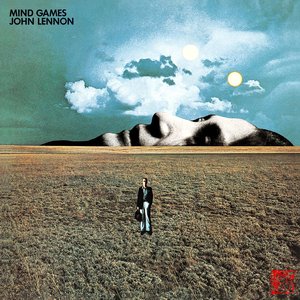Wiki
-
Length
4:19
"You Know My Name (Look Up the Number)" is a song by The Beatles originally released as the B-side of the single "Let It Be" on 6 March 1970. Although first issued with their final single (penultimate single in the United States), it was recorded in four separate sessions beginning with three in May and June 1967, and one in 1969.
The song is a music hall comedy number. Lennon came up with the lyric/title after seeing a phone book. He said: "That was a piece of unfinished music that I turned into a comedy record with Paul. I was waiting for him in his house, and I saw the phone book was on the piano with 'You know the name, look up the number.' That was like a logo, and I just changed it."
McCartney once told Beatles recording analyst Mark Lewisohn, " are only just discovering things like 'You Know My Name (Look Up the Number)'—probably my favourite Beatles' track!" He went on to explain: "It's so insane. All the memories … I mean, what would you do if a guy like John Lennon turned up at the studio and said, 'I've got a new song'. I said, 'What's the words?' and he replied 'You know my name look up the number'. I asked, 'What's the rest of it?' 'No, no other words, those are the words. And I want to do it like a mantra!'"
The song moves through several sections which appear to be stylistic references to some of the Beatles' contemporaries, including Mick Jagger of The Rolling Stones and folksinger Trini Lopez. The Trini Lopez or "lounge" section includes a reference to Denis O'Dell, associate producer on the A Hard Day's Night film. Partway through the song, Lennon introduces McCartney as lounge singer "Denis O’Bell," one consonant away from the name of the film producer Lennon had worked with not only on Hard Day's Night but also How I Won the War. The reference prompted numerous telephone calls to O'Dell's home by fans who told him, "We have your name and now we've got your number," as well as personal visits by fans wanting to live with him.
All four Beatles participated in the first three recording sessions on 17 May, 7 and 8 June 1967. A saxophone part was recorded on 8 June which was played by Brian Jones of The Rolling Stones.
The song was left unreleased and untouched until 30 April 1969 when Lennon and McCartney laid down all the vocal tracks and added additional sound effects with the help of Mal Evans. George Harrison and Ringo Starr did not participate in this last session. Nick Webb, second engineer on the 30 April session described it this way: "John and Paul weren't always getting along that well at this time, but for this song they went out on the studio floor and sang together around one microphone. Even at this time I was thinking 'What are they doing with this old four-track tape, recording these funny bits onto this quaint song?' But it was a fun track to do."
Despite the fun sessions described by McCartney and Webb, the song was not released for another year.
Although eventually released as a Beatles song, "You Know My Name (Look Up the Number)" was nearly released as the A-side of a Plastic Ono Band single. Lennon was determined to have this song and "What's the New Mary Jane" (a Beatles outtake from the White Album recorded by Lennon and Yoko Ono with George Harrison) released, and he arranged for Apple to issue both unorthodox songs on a Plastic Ono Band single. On 26 November 1969, 4 months after Jones drowned in his swimming pool, Lennon edited "You Know My Name (Look Up the Number)", reducing the length from 6:08 to 4:19, a more suitable length for a single. The Plastic Ono Band single was given an Apple catalogue number (Apples 1002) and British release date (5 December 1969).
Apple issued a press release, describing the record as Lennon and Yoko Ono singing and backed by "many of the greatest show business names of today" which the press believed was a thinly disguised reference to the Beatles. The record was canceled before it was issued.
Three months later, the song was released as the B-side to the Beatles' single, "Let It Be." The original Plastic Ono Band single catalogue number is visible, though scratched out, in the runout groove of the original British pressings of the "Let It Be" single.
"What's the New Mary Jane" was not officially issued by the Beatles until the release of Anthology 3 in 1996, although the song did appear on bootleg records.
"You Know My Name (Look Up the Number)" was the last Beatles song from the group's official canon to be included on an album, issued on 12" vinyl for the first time on Rarities (which had been included as a bonus disc in the British and American boxed set, The Beatles Collection in 1978, and released separately as an album in the United Kingdom in 1979). The first stand-alone American album to feature "You Know My Name (Look Up the Number)" was the U.S. Rarities, which was released in 1980.
The first CD version was issued in 1988 on the Past Masters, Volume Two compilation.
"You Know My Name (Look Up the Number)" was available only in mono until 1996, when an extended stereo mix was finally issued on Anthology 2. However, while this mix restores portions of the song, it omits others that were released on the mono single, causing considerable differences between the mono and stereo versions of the track. For example, the ending of the stereo version has the talking portion fade out, whereas the mono version does not.
A stereo version featuring all five sections uncut has never been released or appeared on bootlegs.
On the U.S. pressings of the original 7" single and Rarities the song was erroneously titled "You Know My Name (Look Up My Number)"
Track descriptions on Last.fm are editable by everyone. Feel free to contribute!
All user-contributed text on this page is available under the Creative Commons Attribution-ShareAlike License; additional terms may apply.



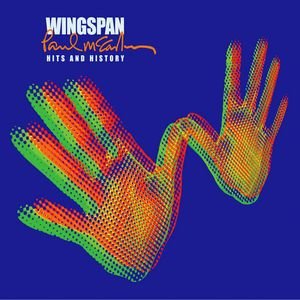

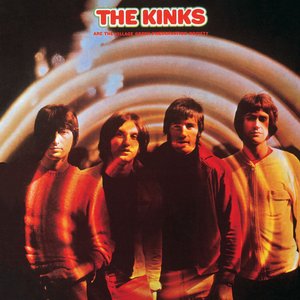

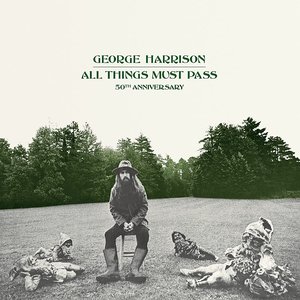
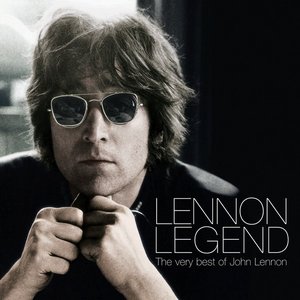
![All Things Must Pass (50th Anniversary) [Super Deluxe]](https://lastfm.freetls.fastly.net/i/u/300x300/ad6f36412e2e164f5e6c93287870d05c.jpg)
